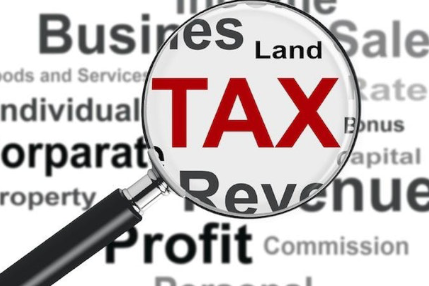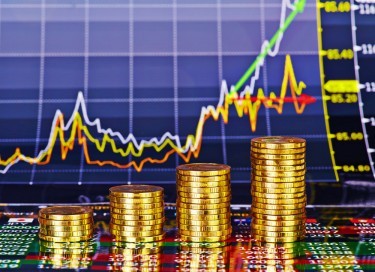NEW YEARS DAY
NEW YEARS DAY
NEW YEARS DAY
CHRISTMAS DAY

This course familiarizes students with theories and policies of international trade. Students will learn the importance of international trade and examine its effects on production, profits and the distribution of wealth in the economy. The course will introduce concepts such as comparative advantage, increasing returns to scale, factor endowments…etc.… Students will also analyze specific trade agreements and discuss their impact on the American working class.
Instructor: Stephen Taft
Location: 149 East 38th Street, New York, NY 10016
Time: 6:30 PM – 8:30 PM
Dates: 11/16, 11/30, 12/7, 12/14, 12/21
Main Texts: H. George, Protection or Free Trade

Whether they consider themselves disciples of Milton Friedman, Libertarians a la Murray Rothbard, or supporters of Thomas Piketty, economists of all confessions have come to agree on one thing; the United States urgently needs a comprehensive tax overhaul. The problem however, is how.
Should taxes attempt to achieve social justice, maximize government revenue or be as little disruptive to entreprise as possible?
In this seminar, Tom Ballou will shed light on possible directions of the US tax policy and ask whether the Trump Tax plan will change America for the better or worse.
Location: Henry George School of Social Science, 149 East 38th Street (Between Lexington & 3rd Avenue) New York, NY 10016
Time: 6:30pm to 8:30pm
Date: Tuesday, December 19, 2017
Space is limited, please register !

Upheavals in how the U.S. economy operates have transformed Americans from wealth creators to creative borrowers. This course looks at how abandoning the Gold Standard, a bulwark of the world economy since the Industrial Revolution, has helped replace capital accumulation and investment with credit-fueled consumption. Will this revolutionary shift usher in a new era of growth or lead to yet another wave of cyclical depressions? What is the role of land in this process? This five-lesson course will highlight structural changes to the U.S. economy since the demise of the World War II-spawned financial order, also known as the Bretton Woods system.
Instructor: Dr. Ibrahima Drame
Location: 149 East 38th Street, New York, NY 10016
Time: 6:30 PM – 8:30 PM
Dates: Mondays: 12/4, 12/11, 12/18, 1/8, 1/22

This course familiarizes students with theories and policies of international trade. Students will learn the importance of international trade and examine its effects on production, profits and the distribution of wealth in the economy. The course will introduce concepts such as comparative advantage, increasing returns to scale, factor endowments…etc.… Students will also analyze specific trade agreements and discuss their impact on the American working class.
Instructor: Stephen Taft
Location: 149 East 38th Street, New York, NY 10016
Time: 6:30 PM – 8:30 PM
Dates: 11/16, 11/30, 12/7, 12/14, 12/21
Main Texts: H. George, Protection or Free Trade

Upheavals in how the U.S. economy operates have transformed Americans from wealth creators to creative borrowers. This course looks at how abandoning the Gold Standard, a bulwark of the world economy since the Industrial Revolution, has helped replace capital accumulation and investment with credit-fueled consumption. Will this revolutionary shift usher in a new era of growth or lead to yet another wave of cyclical depressions? What is the role of land in this process? This five-lesson course will highlight structural changes to the U.S. economy since the demise of the World War II-spawned financial order, also known as the Bretton Woods system.
Instructor: Dr. Ibrahima Drame
Location: 149 East 38th Street, New York, NY 10016
Time: 6:30 PM – 8:30 PM
Dates: Mondays: 12/4, 12/11, 12/18, 1/8, 1/22

This course familiarizes students with theories and policies of international trade. Students will learn the importance of international trade and examine its effects on production, profits and the distribution of wealth in the economy. The course will introduce concepts such as comparative advantage, increasing returns to scale, factor endowments…etc.… Students will also analyze specific trade agreements and discuss their impact on the American working class.
Instructor: Stephen Taft
Location: 149 East 38th Street, New York, NY 10016
Time: 6:30 PM – 8:30 PM
Dates: 11/16, 11/30, 12/7, 12/14, 12/21
Main Texts: H. George, Protection or Free Trade

Our economic system often features opposing interests; workers who want more pay, capitalists who want more interest, shareholders who want more profits, and landowners who want more rent. In Germany, businesses adopt a different mindset; emphasizing the long term, placing great value on relationships with employees, customers, and suppliers, and commitment to the wider community.
Germany’s small and medium size enterprises (“SMEs”), known as “Mittelstand” range across the country. They are unique to Germany, and the backbone of its strong economy.
In this seminar, Michael Bucher presents several case studies in Germany’s “Mittelstand” and examines their underlying concepts, characteristics, and how they thrive in competitive markets while being socially responsible.
Michael Bucher is currently a freelance researcher/writer for Shanghai Business Review, writing on topics in business, trade, and international relations relating to China.
Location: Henry George School of Social Science, 149 East 38th Street (Between Lexington & 3rd Avenue) New York, NY 10016
Time: 6:00pm to 8:00pm
Date: Wednesday, December 6, 2017
Space is limited, please register !

Upheavals in how the U.S. economy operates have transformed Americans from wealth creators to creative borrowers. This course looks at how abandoning the Gold Standard, a bulwark of the world economy since the Industrial Revolution, has helped replace capital accumulation and investment with credit-fueled consumption. Will this revolutionary shift usher in a new era of growth or lead to yet another wave of cyclical depressions? What is the role of land in this process? This five-lesson course will highlight structural changes to the U.S. economy since the demise of the World War II-spawned financial order, also known as the Bretton Woods system.
Instructor: Dr. Ibrahima Drame
Location: 149 East 38th Street, New York, NY 10016
Time: 6:30 PM – 8:30 PM
Dates: Mondays: 12/4, 12/11, 12/18, 1/8, 1/22
